Kidney Failure
- Home
- >
- Kidney Failure
- >
- Kidney Matters
Follow us on Facebook
Follow us on Instagram
Follow us on YouTube
Follow us on TikTok
Kidney Matters
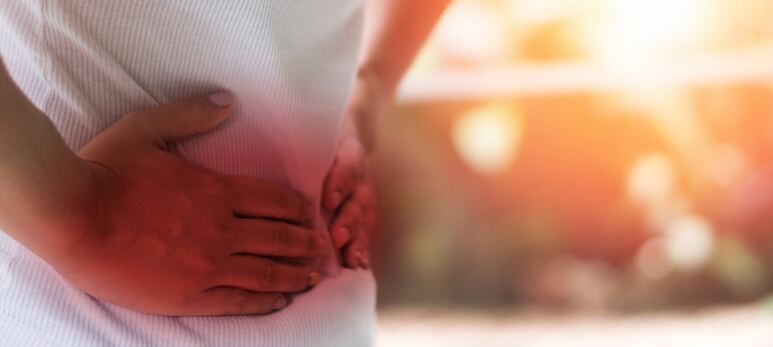
You are Wrong, the answer is True!
Kidney stones occur when mineral salts crystallise in the kidneys. Tiny crystals pass out of the body in our urine but the larger stones can cause a back-up of urine in the kidneys, ureter and the bladder, causing pain. Hence are very seldom left untreated till its deterioration to kidney failure.
There is also the likely occurrence of “silent” stones, which cause no pain and symptoms.
They are often left untreated for long months to years, occasionally leading to kidney damage.
Untreated kidney stones might indeed increase the risk of kidney failure, causing blockage in blood urine flow. This can eventually result in a dilated kidney with minimal function.
The percentage of kidney failure related to kidney stone is small compared to diabetes and hypertension.
One in 10 people will develop kidney stones at some stage of their lives.
Prevention Tips
- Drink plenty of water.
- Reduce sodium intake because it can trigger formation of kidney stones and increases the amount of calcium in your urine.
- Cut down on animal protein, such as red meat, poultry and eggs as it boosts the level of uric acid and could lead to kidney stones.
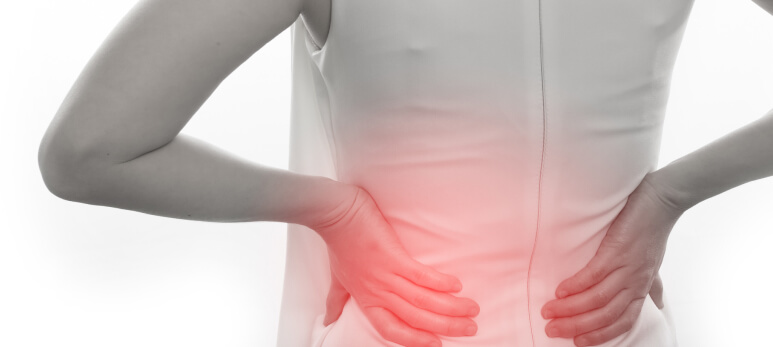
You are Wrong, the answer is True!
Back pain is not usually a symptom of kidney disease. When kidneys become distended due to a blockage of the flow of urine or becomes infected, it may cause pain. Severe pain may also occur with the presence of kidney stones, especially when the stones move down the ureter. Other causes of back pain also include muscle pain or diseases of the spine.
The term kidney disease does not equate to kidney failure. We say kidney failure only when the functions of the kidneys are compromised and are unable to maintain normal composition of the body fluids which will most likely result in the accumulation of toxins in the body.
Symptoms of kidney failure can vary between different people. Do look for other symptoms such as:
- Decreased urination
- Nausea and vomiting
- Swollen hands and ankles
- Puffiness around the eyes
- Itching
- Sleep disturbances
- High blood pressure
- Loss of appetite

You are Wrong, the answer is True!
Taking statins (medication that blocks the action of an enzyme in the liver that helps produce cholesterol) does not mean that you can ignore your doctor’s advice about following a low-cholesterol diet.
There are people who have the misconception that their medication will undo any cholesterol overload, regardless of what they eat. Even while you are on medication, it is important that you watch your diet, especially saturated fat.
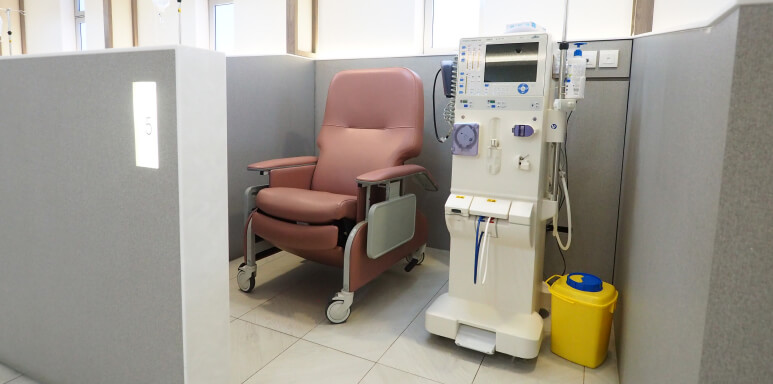
You are Wrong, the answer is True!
Not everyone with CKD needs dialysis. CKD is a general term to describe a wide range of kidney abnormalities and can occur without kidney failure. CKD is a progressive disease.
In its early stages, it is usually managed with diet and medication. With this approach, most people can slow or stop the progression of kidney disease and enjoy a normal lifestyle. That is why, it is important to detect and treat kidney disease early. Dialysis or a kidney transplant is only needed at CKD 5.

You are Wrong, the answer is True!
There are tests and procedures for kidney disease diagnosis. The tests include:
- Serum Creatinine which is one of the key indicators to determining how well the kidneys are functioning.
- Urine Analysis to find out how much albumin (a type of protein) is in the urine as an excessive amount of protein is an early sign of kidney damage.
Kidney disease is a progressive disease and there are five CKD stages. The estimated Glomerular Filtration Rate (GFR) will determine which stage of kidney disease the person is at. You may require additional blood tests and screening depending on your condition.
In its early stages, kidney disease is usually managed with diet and medication. With this approach, most people can slow or stop the progression of kidney disease and enjoy a normal lifestyle.
Those with medical or family history of diabetes, cardio-vascular disease including hypertension, stroke, obesity or kidney disease are at higher risk of kidney failure. Hence, it is important for one to go for regular health screenings and to consult one’s general practitioner or healthcare provider who will be able to advise on the necessary course of action where needed.

You are Wrong, the answer is True!
A kidney transplant offers the best long-term odds of survival and quality of life. It is the best option of treatment to kidney failure. The transplanted kidney can substitute almost fully the lost functions of the failed kidneys and it usually begins to function right away, thus allowing the patient to lead a normal life. With a new lease of life, the patient no longer faces day-to-day restrictions due to having to undergo dialysis for the rest of his or her life.
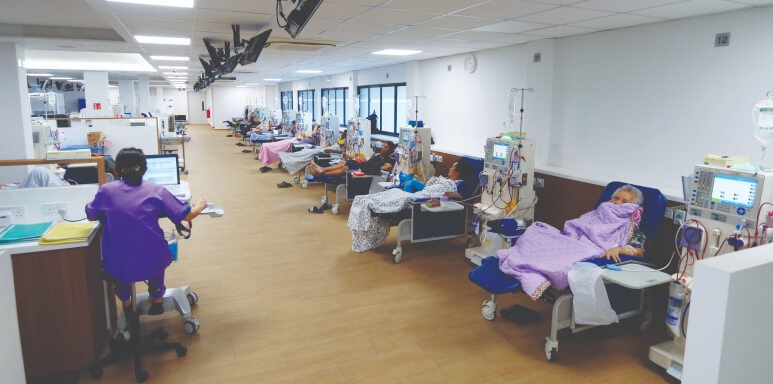
You are Wrong, the answer is True!
“Kidney disease” does not equate to “kidney failure”. “Kidney disease” is a general term used to describe different types of diseases related to the kidneys. Chronic kidney disease is a progressive disease. Most patients with chronic kidney disease can manage their condition and lead normal lives through adhering to their doctor’s advice regarding diet and medication. Hence, not all patients with kidney disease need to go for dialysis.
However, if you have kidney failure, also known as End-Stage Renal Disease (ESRD), means that your kidneys are functioning at 15% of its capacity or less. Your kidneys are unable to maintain the normal composition of body fluids, resulting in the accumulation of toxins in the body.
At this stage, you will need dialysis or a kidney transplant for survival. This also highlights how crucial it is to identify the early warning signs of kidney disease and take steps to protect your kidneys.
Diabetes and high blood pressure are the most common causes of kidney failure. That is because it can damage the arteries leading to your kidneys and the tiny blood vessels (glomeruli) within the kidneys. Damage to either makes it so your kidneys cannot effectively filter wastes from your blood. As a result, dangerous levels of fluid and waste can accumulate and cause kidney failure.
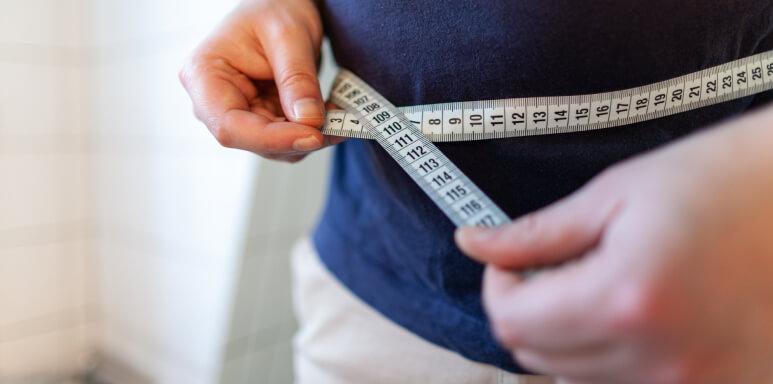
You are Wrong, the answer is True!
Obesity leads to diabetes and high blood pressure, among other chronic diseases, both of which are the two leading causes of kidney failure. Causes of obesity include poor dietary choices, lack of exercise, a family history of being overweight or obese and negative emotions like boredom sadness, or anger, which may influence eating habits.
Some ways to watch your weight:
- Brisk walk for at 30 minutes each time, 2.5 hours per week.
- Jog or swim three times a week.
- Keep a food diary of everything you eat.
- Make a shopping list before going grocery shopping to reduce impulse buys and do not shop when you are hungry.
- Grill, bake or steam instead of deep-frying
- Use healthier cooking oils like canola, sunflower or peanut.
- You may speak to your healthcare provider to help you plan your diet, exercise and behaviour modification.





